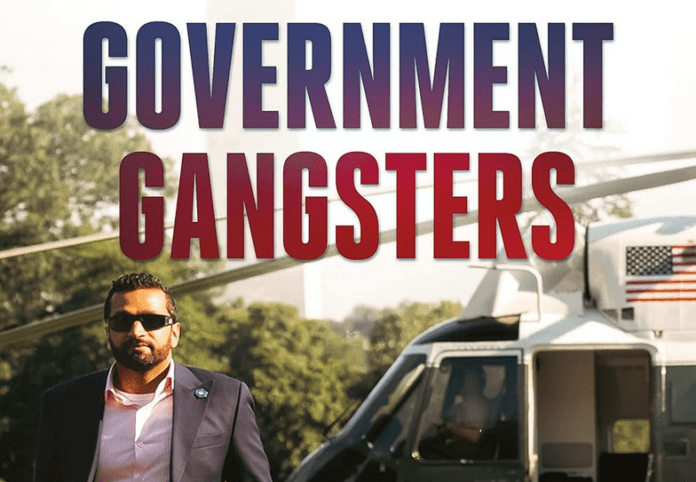Corruption in the United States has reached staggering proportions, casting a shadow over the country’s reputation as a global beacon of democracy. The recent pardon of Hunter Biden by President Joe Biden is just one episode in a larger narrative of systemic rot that plagues America’s political system. This situation underscores the audacious premise of Kash Patel’s Government Gangsters: The Deep State, the Truth, and the Battle for Our Democracy. Patel, Trump’s choice for FBI Director, claims to have the blueprint to dismantle this corruption. But can even the world’s most powerful law enforcement agency combat a system that seems irreparably broken?
The Rotten Core of U.S. Democracy
The U.S. political system has often been touted as a model of democracy. Yet, when scrutinized, it appears rife with corruption and self-serving political elites. While countries like Russia and emerging economies in Africa, South America, and Asia are often labeled as corrupt, the U.S. might well surpass them. The sordid history of state governors alone is enough to make this case.
A glance at the long list of convicted and indicted U.S. governors reads more like a corruption manual than a record of public service. Illinois, for example, is notorious for its revolving door of gubernatorial scandals, with four of its last ten governors serving time in federal prison. Governors from other states are no strangers to indictments either, showcasing a nationwide epidemic of political misconduct.
Illinois: A Case Study in Gubernatorial Corruption
Illinois epitomizes the deep-seated corruption in U.S. governance. Four governors have been convicted in recent decades:
- Rod Blagojevich (Democrat, 2003-2009): Sentenced to 14 years in prison for trying to sell Barack Obama’s Senate seat. Although his sentence was commuted by President Trump in 2020, his case remains a stark example of unbridled political greed.
- George Ryan (Republican, 1999-2003): Convicted of racketeering and fraud in 2006, serving 6.5 years in federal prison.
- Dan Walker (Democrat, 1973-1977): Pleaded guilty to bank fraud and perjury, unrelated to his governorship, and served 18 months in prison.
- Otto Kerner Jr. (Democrat, 1961-1968): Convicted on 17 counts, including bribery and conspiracy, serving three years behind bars.
Illinois’s current governor, J.B. Pritzker, has faced federal investigation for a property tax scheme, though he has not been charged. The sheer frequency of these scandals raises questions about the structural flaws that allow corruption to flourish in Illinois and beyond.
A Nationwide Epidemic
The problem is far from confined to Illinois. Governors from across the U.S. have faced corruption charges, including:
- Andrew Cuomo (Democrat, New York): Resigned amid sexual misconduct allegations and faced criminal investigations.
- John Rowland (Republican, Connecticut): Convicted twice for corruption-related offenses.
- Edward DiPrete (Republican, Rhode Island): Pleaded guilty to bribery-related charges in 1998.
- Mike Easley (Democrat, North Carolina): Reached a plea deal for violating campaign finance laws.
- Roger Wilson (Democrat, Missouri): Pleaded guilty to money laundering.
Since the 1990s, at least 11 governors have been convicted of federal corruption offenses. These cases represent only the tip of the iceberg in a political landscape riddled with misconduct.
Kash Patel and the Government Gangsters
In his controversial book, Kash Patel lays bare a system he claims is dominated by unelected elites and entrenched bureaucrats—the “Government Gangsters.” Appointed as FBI Director by Donald Trump, Patel is tasked with dismantling this deep-rooted corruption. His knowledge of the inner workings of this system, detailed in his book, positions him as a potential disruptor. However, even with his insights, the task may be insurmountable.
A Non-Manageable Challenge?
The sheer scale of corruption in the U.S. raises the question: can the Trump team, led by Patel, truly reform this system? The systemic rot seems to stem not just from individual bad actors but from a culture of impunity and institutional complicity. The entrenchment of political corruption in the United States rivals that of any so-called “developing nation,” making meaningful reform a Herculean challenge.
While Patel’s appointment signals Trump’s determination to fight back against the “Government Gangsters,” history suggests that this battle may be unwinnable. If the past is any indication, the corrupt system may simply adapt, outlasting even the most determined reform efforts.
Conclusion: Fighting an Uphill Battle
The U.S. government’s deep-seated corruption has been laid bare through scandals, indictments, and convictions, particularly among state governors. While Kash Patel’s appointment as FBI Director reflects Trump’s resolve to combat the “Government Gangsters,” the scale of the challenge ahead raises doubts about the feasibility of meaningful reform. Can the Trump team overcome a system designed to protect itself, or will the Government Gangsters prove too entrenched to defeat? Only time will tell, but the fight promises to be nothing short of a monumental struggle.





